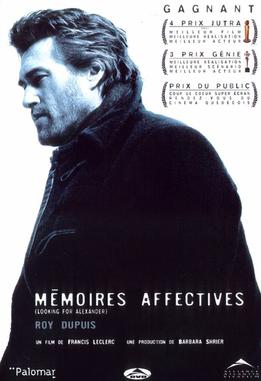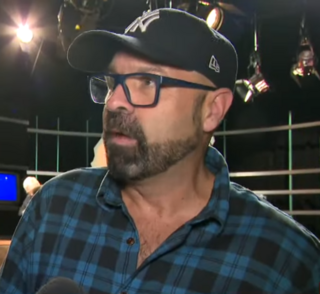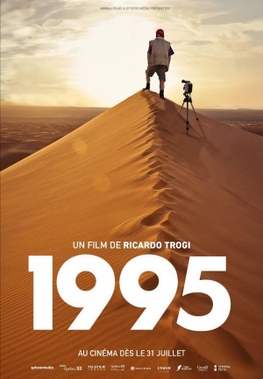Related Research Articles
Le Journal de Montréal is a daily French-language tabloid newspaper published in Montreal, Quebec, Canada. It has the largest circulation of any newspaper in Quebec and is also the largest French-language daily newspaper in North America. Established by Pierre Péladeau in 1964, it is owned by Quebecor Media, and is hence a sister publication of TVA flagship CFTM-DT. It is also Canada's largest tabloid newspaper. Its head office is located on 4545 Frontenac Street in Montreal.

Looking for Alexander is a Canadian drama film. It was directed and written by Francis Leclerc. Marcel Beaulieu also wrote the script.

Sylvie Moreau, is a Canadian actress.

Ricardo Trogi is a Canadian filmmaker, director and actor.

The Albert Londres Prize is the highest French journalism award, named in honor of journalist Albert Londres. Created in 1932, it was first awarded in 1933 and is considered the French equivalent of the Pulitzer Prize. Three laureates are awarded each year. The three categories are : "best reporter in the written press", "best audiovisual reporter" and "best reporting book".

1987 is a 2014 autobiographic movie of the director Ricardo Trogi starring Jean-Carl Boucher as Ricardo Trogi and Sandrine Bisson as Claudette Trogi. It is the sequel to the movie 1981, which came out in 2009. The movie puts emphasis on Trogi's teen years, when he was experiencing family problems and discovering his sexual identity. It also demonstrates the life of second-generation migrants.
The Prix Gratien-Gélinas, originally known as Prime à la création du Fonds Gratien-Gélinas, is a Canadian theatre prize awarded for an original script with the aim of helping bring it to the stage. It was first awarded in 1994. It is presented by the Centre des auteurs dramatiques du Québec with the financial support of Quebecor, Cirque du Soleil and Ici Radio-Canada. Named in honour of Gratien Gélinas, it is considered the most important Canadian award recognizing emerging talent in francophone playwriting.
The Prix Iris for Best Film is an annual film award presented Québec Cinéma as part of its Prix Iris program, to honour the year's best film made within the Cinema of Quebec.
Québec Cinéma presents an annual award for Best Actor to recognize the best in the Cinema of Quebec.
Québec Cinéma presents an annual award for Best Supporting Actor to recognize the best in the Cinema of Quebec.
Québec Cinéma presents an annual award for Best Supporting Actress to recognize the best in the Cinema of Quebec.
Québec Cinéma presents an annual award for Best Director to recognize the best in the Cinema of Quebec.
The Prix Iris for Best Screenplay is an annual film award, presented by Québec Cinéma as part of its Prix Iris program, to honour the year's best screenplay in the Cinema of Quebec.
The Prix Iris for Best Documentary Film is an annual film award presented by Québec Cinéma as part of its Prix Iris program, to honour the year's best documentary film made within the cinema of Quebec.
The Prix Iris for Best Editing in a Documentary is an annual film award, presented by Québec Cinéma as part of its Prix Iris awards program, to honour the year's best film editing in documentary films made within the Cinema of Quebec.
The Prix Iris for Best Live Action Short Film is an annual film award presented by Québec Cinéma as part of its Prix Iris program, to honour the year's best short film made within the cinema of Quebec. Starting at the 16th Jutra Awards, the award was presented to the directors and producers of the short films. Prior to that ceremony, only the directors received nominations.
The Prix Iris for Best Casting is an annual film award, presented by Québec Cinéma as part of its Prix Iris awards program, to honour the year's best casting in films made within the Cinema of Quebec.
The Prix Iris for Best Makeup is an annual film award, presented by Québec Cinéma as part of its Prix Iris awards program, to honour the year's best makeup work in films made within the Cinema of Quebec.
Chloé Cinq-Mars is a Canadian film director and screenwriter from Quebec, most noted as writer of the 2018 film The Far Shore (Dérive).

1995 is a 2024 Canadian comedy film written and directed by Ricardo Trogi. The fourth film in his semi-autobiographical series after 1981, 1987 and 1991, the film stars Jean-Carl Boucher as Trogi, making his first foray into filmmaking as a contestant in the competition series La Course destination monde in 1995.
References
- ↑ Natasha Gauthier, "Chasing dreams on La Course". Montreal Gazette , September 24, 1995.
- ↑ "Shows for children, youth highlight CBOFT season". Ottawa Citizen , September 3, 1988.
- ↑ Nathaëlle Morissette and Marc Cassivi, "Ex-concurrents de la Course destination monde: que sont-ils devenus?". La Presse , October 23, 2010.
- ↑ "Catherine Fol à l'ONF en juin". La Presse , April 29, 1989.
- ↑ Ghislaine Rheault, "Stéphane Drolet, gagnant de la course Amérique-Afrique: La souffrance du Petit Prince"]. Le Soleil , March 11, 1990.
- ↑ Rollande Allard-Lacerte, "Brassebouillon et compagnie". Le Devoir , March 14, 1991.
- ↑ "Gilbert rafle trois des huit prix". La Tribune , March 30, 1992.
- ↑ Marie Lecomte, "Les globe-trotters de la Course rentrent au bercail". La Presse , April 3, 1993.
- ↑ Jennifer Alleyn, "La Course Destination Monde récompense ses globe-trotters". Le Devoir , March 21, 1994.
- ↑ Jacques Drapeau, "Prévost et Trogi savourent leur victoire". Le Soleil , April 24, 1995.
- ↑ Sylvain Larocque, "Philippe Desrosiers, le prof qui gagne la course". La Presse , May 19, 1996.
- ↑ Bill Anderson, "In Road Movies, CBC lets youths tell own tales; Network gets fresh viewpoints - and a TV series for $100,000 an episode". Montreal Gazette , July 17, 1992.
- ↑ The electronic reporter : broadcast journalism in Australia (2nd ed.). University of New South Wales Press. 2006. ISBN 0868404950.
- ↑ "Le tournage du dernier film de Ricardo Trogi, «1995», commence". Le Devoir , October 10, 2023.